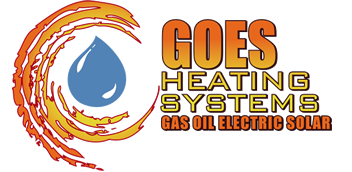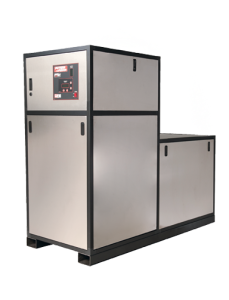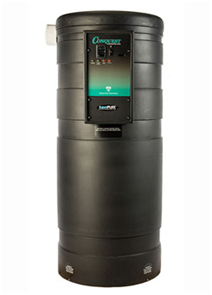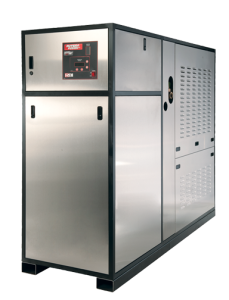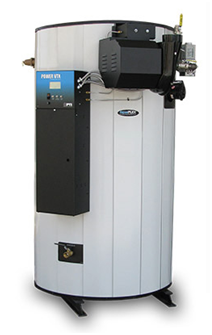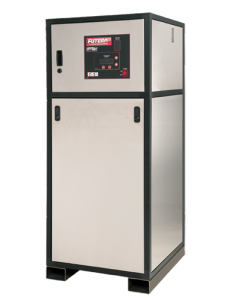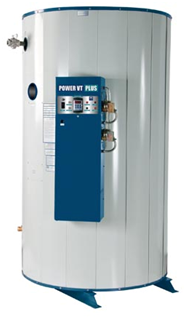- Home
- Domestic Condensing 86% – 97% Efficiency,
Domestic Condensing 86% – 97% Efficiency,
Commercial Domestic Water Heaters tend to only have two common configurations. There tank type water heater or a water heater and a separate storage tank. Both have benefits and drawbacks and both will work in majority of applications. Goes Heating Systems is happy to educate anyone on our selection process. We find if people understand our products it makes selection, install, and maintenance easier for everyone. Whichever selection is made we want the equipment to operate as long and efficiently as it can. Below is a brief description of the system to help start on the selection process.
A tank type water heater advantages are the compact design and doesn’t take much to pipe it in. However the drawback is that if anything happens to the tank or heat exchanger a whole new unit usually is required. There are many manufactures and designs of this type of heater. So knowing a reliable brand can be tough. We would recommend looking at how long the warrantable life of the manufacture lets you know if they will stand behind their product. Also having a representative that understand hot water heaters and has been in the business for 30+ years to back you always helps. The tank type boilers Goes Heating Systems carries start off at 15 year warranty. Majority of manufactures don’t start off with a 15 year warranty they are around 1-3 years for commercial products.
A water heater and a storage tank applications advantages are each part is accessible so if one part were to be serviced or changed out it can be replaced. Also it allows for more variation on tank and boiler size combinations. However more piping is required on install and since each part is a different manufacture the customer needs to know each has a different warranty. Installation is important for boiler function and longevity. Also depending on application the cold water inlet needs to be properly installed to insure the boiler does directly take cold water and condenses. If there are any questions on piping we will be glad to answer just let us know.
Condensing water heaters will require 70 degree temp city supply water on the inlet side to be able to condense. A boiler and storage tank have a disadvantage because it will require the domestic system to have a certain draw for that boiler to start to condense. Only when a water heater condenses do you see the 97 % efficiencies. Goes Heating Systems tank type water heaters will condense through outs its draw rate. This allows for maximum energy saving throughout the boiler operation and will have the quickest payback for domestic application. Due to the high efficiency the flue needs to be CAT IV but the temp of exhaust is now approaching the outlet temp of the water. This now allows the flue to be vented in poly propylene. If the boiler has a long vent run a condensing boiler could be a cheaper option because of venting. The boiler still heats up water to 140 degrees to kill legionella. Since stratification naturally happens in a tank that means the coldest water will be at the bottom. This is where majority of the condensing will happen. So a point of source mixing valve or central system mixing valve will still be required. Goes Heating Systems is more than happy to go into further detail and have classes where we talk about heater application, piping, and layout.b v
Please see below on Goes Heating Systems options for condensing water heaters.
RBI Water Heater and Storage Tank |
PVI Tank Type |
Fusion XLF |
|
Futera III |
|
|
|
